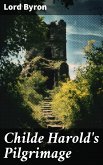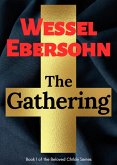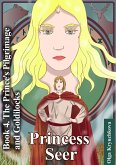In "Childe Harold's Pilgrimage," Lord Byron crafts an introspective and rich exploration of a disillusioned young hero's travels across Europe. The poem, composed in four cantos, showcases Byron's innovative use of the lyric form, blending personal reflection with grand scenic descriptions that resonate with the Romantic era's emphasis on emotion and nature. Themes of ennui, exile, and the search for meaning pervade the text, reflecting a profound sense of melancholy that characterizes much of Byron's oeuvre. The vivid imagery and philosophical musings invite readers to embark on a metaphysical journey alongside Harold, revealing both the external landscapes he traverses and the internal conflicts that shape his identity. Lord Byron, a leading figure of the Romantic movement, was deeply influenced by his own experiences of travel, social alienation, and political upheaval. His own noble lineage and tumultuous personal life allowed him to grapple with themes of freedom and self-exploration, which resonate throughout "Childe Harold's Pilgrimage." The poem emerged during a period of personal crises for Byron, reflecting his own quest for purpose and belonging, making it both a personal testament and a generational commentary. I highly recommend "Childe Harold's Pilgrimage" to readers seeking an intricate blend of adventure, existential musings, and Romantic idealism. Byron's ability to evoke profound emotions and vivid landscapes will captivate both lovers of poetry and those intrigued by the complexities of human experience. This seminal work not only exemplifies the power of poetic expression but also invites readers to ponder the deeper questions of life and self.
Dieser Download kann aus rechtlichen Gründen nur mit Rechnungsadresse in A, B, BG, CY, CZ, D, DK, EW, E, FIN, F, GR, H, IRL, I, LT, L, LR, M, NL, PL, P, R, S, SLO, SK ausgeliefert werden.









